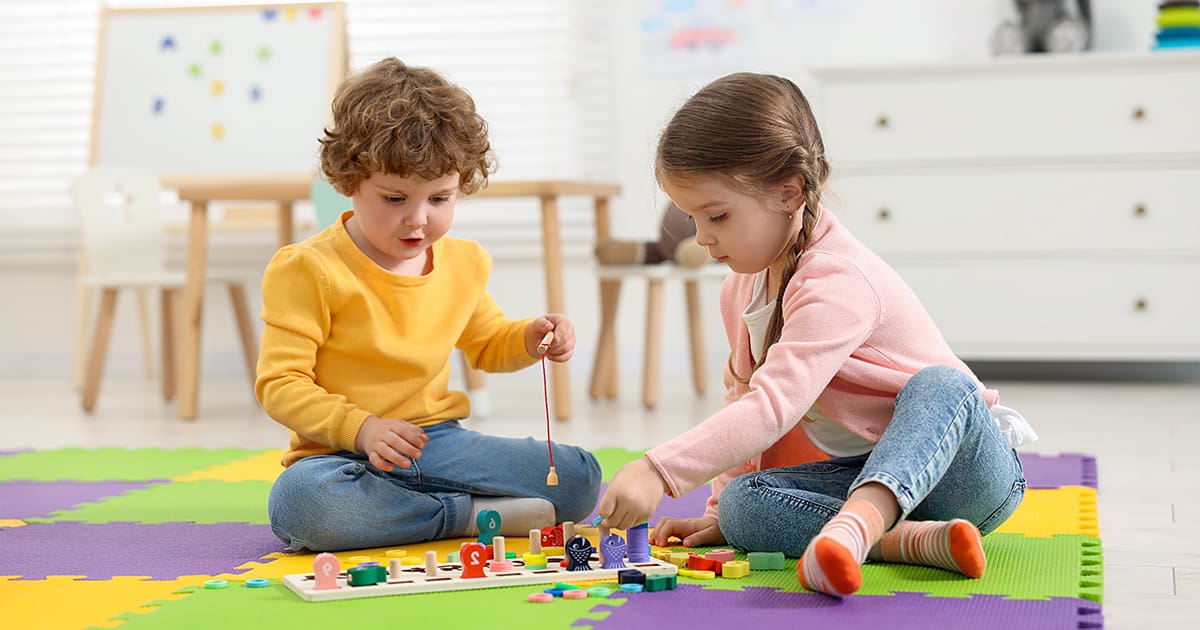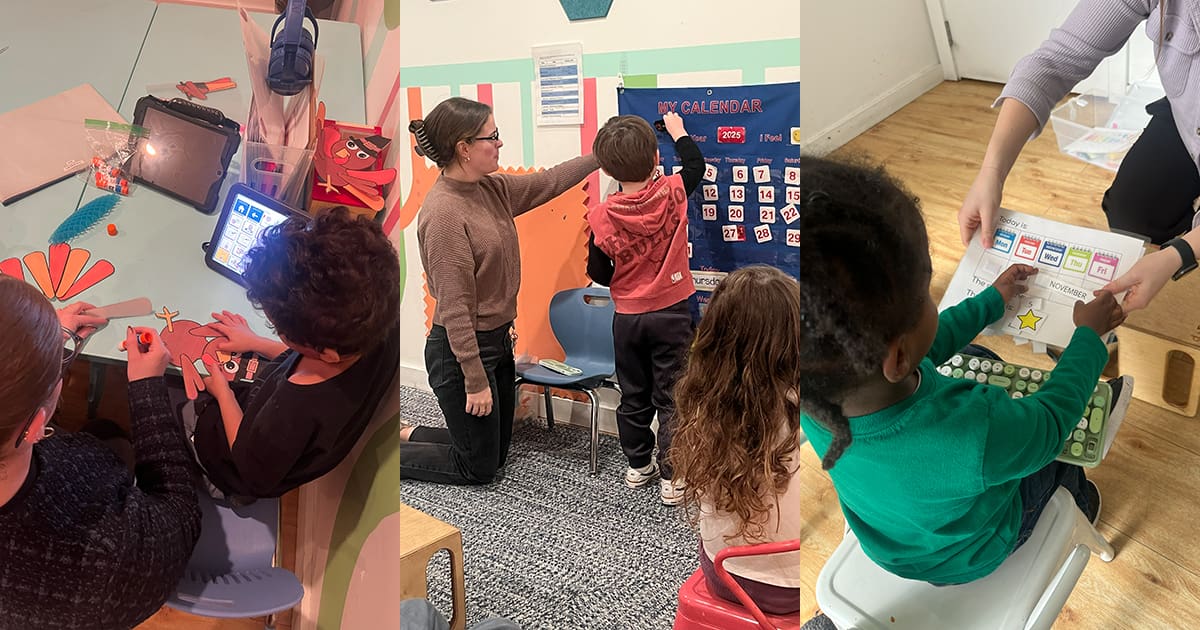Share this Post

For children, play is more than just fun—it’s their most natural and essential way of learning. Through play, children develop critical cognitive, social, and physical skills that lay the foundation for lifelong growth and success. For children with autism or developmental delays, learning play skills becomes even more important, as structured play can help them bridge developmental gaps and thrive in social situations.
At CST Academy, we believe that every child has the potential to learn through play. With the right guidance, encouragement, and tools, children can improve their communication, motor skills, problem-solving abilities, and social interactions. This guide will take you through the importance of play, key play milestones, and strategies for helping your child develop play skills both at home and in a therapeutic setting.
Why Are Play Skills Important for Child Development?
Play isn’t just a pastime—it’s the way children explore the world, express themselves, and make sense of new experiences. Developing play skills has several benefits:
- Fosters Cognitive Development:
Activities like building with blocks, solving puzzles, and pretend play help children improve their problem-solving skills, memory, and critical thinking abilities. - Enhances Social Interaction:
Group play encourages children to share, take turns, cooperate, and develop empathy. These experiences build essential social and communication skills. - Improves Language and Communication:
Play provides opportunities for children to practice language in a natural setting. Whether through pretend play or interactive games, children can expand their vocabulary and improve conversational skills. - Promotes Motor Development:
Physical play—such as climbing, running, or manipulating small objects—strengthens both fine and gross motor skills, helping children build the coordination needed for daily activities. - Supports Emotional Regulation:
Play helps children express emotions and practice self-regulation. They learn to navigate challenges, manage frustrations, and celebrate achievements, all within a supportive environment.
Stages of Play Development
Children typically progress through several stages of play as they grow. Understanding these stages can help you identify where your child is developmentally and how to support them.
1. Solitary Play (Birth to 2 Years)
During this stage, children play alone, focusing on their own exploration without much interaction with others.
Activities to Encourage:
- Stacking blocks
- Exploring sensory bins
- Playing with shape sorters or musical toys
2. Parallel Play (2 to 3 Years)
Children play side by side but may not directly interact with each other. This stage is important for learning how to be around peers and share space.
Activities to Encourage:
- Playing with playdough next to another child
- Building towers with blocks alongside a peer
- Exploring individual sensory stations in the same room
3. Associative Play (3 to 4 Years)
Children begin to interact with others during play, sharing toys or engaging in similar activities without a structured goal.
Activities to Encourage:
- Group art projects where children share supplies
- Pretend play involving parallel roles (e.g., one child cooks while another sets the table)
- Building a town or city using blocks and working together to add elements
4. Cooperative Play (4+ Years)
At this stage, children play together with a common goal, such as completing a puzzle, role-playing, or building something collaboratively.
Activities to Encourage:
- Board games that require turn-taking
- Pretend play scenarios like “grocery shopping” or “doctor’s office”
- Cooperative construction projects using Legos or building blocks
Types of Play That Foster Learning and Growth
There are many forms of play, each offering unique benefits to a child’s development. Here are some types of play to incorporate into your child’s daily routine:
1. Pretend Play
Also known as imaginative or symbolic play, pretend play involves children using their imagination to create stories, roles, and scenarios. This type of play helps improve problem-solving, creativity, and social skills.
Activities to Try:
- Playing “house,” where the child pretends to be a parent or sibling
- Pretending to be a chef and making meals with play food
- Setting up a “doctor’s office” and taking turns being the doctor and patient
Therapeutic Tip: Pretend play can be guided by an adult or therapist to help children practice specific social skills, such as taking turns or initiating conversations.
2. Sensory Play
Sensory play engages a child’s senses, including touch, sight, sound, smell, and taste. It’s particularly beneficial for children with sensory processing challenges, as it helps them become more comfortable with different sensory inputs.
Activities to Try:
- Exploring sensory bins filled with rice, beans, or water beads
- Finger painting with different textures
- Playing with kinetic sand or slime
Therapeutic Tip: Gradually introduce new sensory experiences in a safe and supportive environment to help your child become more adaptable to sensory changes.
3. Physical Play
Physical play promotes the development of gross motor skills, coordination, and overall physical health. It also helps children release energy and manage emotions.
Activities to Try:
- Running, jumping, and climbing at the playground
- Obstacle courses set up indoors or outdoors
- Ball games, such as catching, kicking, or rolling
Therapeutic Tip: Structured physical activities, such as guided obstacle courses, can help children with motor delays build strength and coordination while having fun.
4. Structured Play
Structured play involves activities with rules, instructions, or specific objectives, such as puzzles, board games, or craft projects.
Activities to Try:
- Completing simple jigsaw puzzles
- Playing matching games or memory games
- Building structures using step-by-step instructions
Therapeutic Tip: Structured play is particularly effective for teaching children how to follow directions, take turns, and achieve small goals.
How CST Academy Supports the Development of Play Skills
At CST Academy, play is at the heart of everything we do. Our play-based learning approach combines fun, creativity, and evidence-based strategies to support each child’s unique developmental journey. Here’s how we help children develop play skills:
- Individualized Play Plans: Every child’s play needs are assessed, and individualized plans are created to target specific developmental goals.
- Therapist-Guided Play: Our team of speech therapists, occupational therapists, and behavior analysts guide play activities to help children practice communication, motor skills, and social interaction.
- Peer Interaction Opportunities: Small group activities provide children with opportunities to engage in cooperative play, practice social skills, and build friendships.
- Sensory-Friendly Play Environments: Our classrooms are designed to provide a comfortable, supportive space for children with sensory sensitivities, ensuring that they feel safe and engaged during play.
Tips for Encouraging Play Skills at Home
- Create a Dedicated Play Area:
Set up a space where your child feels safe and free to explore toys and activities without distractions. - Follow Your Child’s Lead:
Allow your child to choose activities that interest them, and gently guide the play to encourage learning and skill-building. - Incorporate Play into Daily Routines:
Turn everyday activities into playful learning opportunities. For example, pretend to be “supermarket shoppers” during grocery trips or “cleanup detectives” during chore time. - Praise Small Achievements:
Celebrate your child’s progress, no matter how small. Positive reinforcement boosts their confidence and motivation to keep playing and learning.
Conclusion: Learning Through Play for Lifelong Growth
Play is a gateway to discovery, growth, and connection. For children with autism or developmental delays, learning play skills opens the door to better communication, stronger relationships, and improved problem-solving abilities. At CST Academy, we’re here to guide your child through this joyful journey, providing personalized support every step of the way.
Discover Our Pediatric Therapy & Autism Care
ABA Therapy
Support for children with autism.
Autism Evaluation
Expert assessments to identify child needs.
Pediatric Therapy Services
Speech, Occupational, Feeding, and Physical Therapy.
Therapeutic Preschool
A classroom environment designed for early learners with unique needs.

Find the Best Care for Your Child




